The Other in Dutch Literature in Serbian Translation
The exploration of Dutch literature in Serbian translation unveils significant presence of multicultural voices that have enriched the diversity (#Diversity) of the Dutch literary landscape in Serbia. The historical context of migration to the Netherlands, from the seventeenth century to the present day, has shaped a diverse and vibrant literary tradition that grapples with complex themes of identity, power dynamics, and cultural differences.
Throughout its history, the Netherlands has drawn migrants from diverse corners of the world. As early as the seventeenth and eighteenth centuries, the Republic provided refuge for Protestants and Jews persecuted elsewhere in Europe. The aftermath of the Second World War and the subsequent wave of decolonization brought a new influx of immigrants from former colonies to the Netherlands. Furthermore, the rapid economic growth of the 1960s saw a substantial number of guest workers, mainly from the Mediterranean, Turkey, and Morocco, settling in the Low Countries. This rich tapestry of cultural diversity is also reflected in Dutch literature, where authors with multicultural backgrounds wield their pens to explore subjects such as the complexities of identity, power dynamics, and cultural differences. Notable authors include Halil Gür, Mustafa Stitou, Kader Abdolah, Abdelkader Benali, Rodaan Al Galidi, Hafid Bouazza, Ramsey Nasr, and Jamal Ouariachi. Many of these writers have been translated into Serbian, and some have even managed to capture the attention of the media, a phenomenon not commonly associated with Dutch literature in Serbian translation.
Dutch Literary Diversity Unveiled
Exploring the Presence of Authors with Multicultural Background in Serbia in the New Millennium
Hugo Brems (2016: 669) argues that Dutch literature underwent a multicultural transformation in the last decade of the twentieth century, particularly with the emergence of the second generation of Moroccan immigrants whose books rapidly gained recognition from both critics and readers. However, even before this period, Dutch literature exhibited signs of multiculturalism, thanks to a longstanding tradition of works focused on Dutch Indies and authors with Caribbean and Indian backgrounds who had already gained recognition in the Netherlands. Examining the translations of Dutch authors into Serbian in the new millennium reveals a reflection of multiculturalism. From 2000 to 2021, works by 39 Dutch-language authors, encompassing fiction and literary non-fiction, were published in Serbia. Notably, 20% of these authors have multicultural backgrounds, showcasing a rich diversity in literary offerings to the Serbian readership. In this article, we are using the term ‘multicultural background’ as proposed by Brems (2016) to refer to writers with roots different from those of native Dutch authors. This means that writers such as Jeroen Brouwers, Hella Haasse, or Adriaan van Dis are also rather considered as authors with a multicultural background.
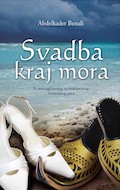
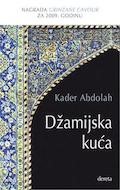
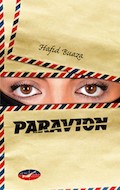
The largest Serbian publisher, Laguna, introduced the voices of two multicultural authors to Serbian readers. Notable translations include Abdelkader Benali’s Wedding by the Sea (Bruiloft aan zee) and Hafid Bouazza’s Paravion, released in 2007 and 2008, respectively. Kader Abdolah’s The House of the Mosque (Het huis van de moskee) reached Serbian readers in 2009, captivating the public and paving the way for the translation of his second book, My Father’s Notebook (Spijkerschrift). Interestingly, the translation of the latter occurred through English, adding an extra layer to the cross-cultural literary exchange.
Thanks to the international recognition and visibility associated with the European Union Prize for Literature, Rodaan al Galidi and Jamal Ouariachi also attracted the attention of Serbian publishers. Their books, The Autist and the Carrier-Pigeon (De autist en de postduif) and A Hunger (Een honger), were translated into Serbian after receiving the prize.
Representation of the Dutch authors with multicultural background
Publishers (#Publishers) significantly shape the reception of foreign literatures in target cultures through promotional activities. Therefore, examining how books by authors with multicultural backgrounds are portrayed in the Serbian market offers valuable insights into the framing of that literature in the Serbian context.
Upon analyzing the paratext on publishers' websites, it was revealed that 50% of Dutch and Flemish translations published in Serbia between 2011 and 2021 are not marketed as Dutch or Flemish literature. The absence of connections to Dutch-language literature is particularly evident when examining the information available, such as story synopses, author biographies, and colophons. This trend is even more pronounced when considering Dutch writers with multicultural backgrounds.
The examination of writers' biographies reveals a notable contrast in how multicultural backgrounds are acknowledged by publishers. Hafid Bouazza stands out as the only author explicitly referred to as Dutch with Moroccan origins, while the majority are characterized by the formulation 'born in' and 'lives in the Netherlands.' Take, for instance, Abdolah, born in Iran; Benali, born in Morocco; and Brouwers, born in Indonesia. Additionally, the colophon infrequently mentions Dutch as the source language, observed only twice. The blurbs lack a connection to the Dutch context, given the international setting of the story. This solidifies the conclusion that these authors are portrayed more as international and multicultural figures than distinctly belonging to the Dutch literary context.
Reception in Serbian media
Dutch literature receives limited attention from traditional Serbian media outlets, with sparse coverage in book announcements, reviews, and author interviews. However, a slightly more positive scenario emerges when looking at online platforms like portals, book bloggers, and Bookstagrammers, where there are additional traces of the reception. As to authors with multicultural backgrounds, it's noteworthy that only Kader Abdolah and Jamal Ouariachi have succeeded in capturing some attention within the Serbian context. Intriguingly, the focus of this reception extends beyond the literary merit of their work, emphasizing instead the cultural and religious backgrounds of the authors and the messages conveyed by their writings.
Kader Abdolah
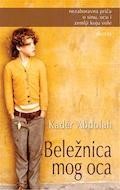
Kader Abdolah sought political refuge in the Netherlands in 1988, escaping Iran due to the critical nature of his novels towards the Khomeini regime. Upon his arrival, he immersed himself in learning Dutch and swiftly transitioned to writing. His breakthrough in the Netherlands came with his semi-autobiographical novel, The Journey of the Empty Bottles (De reis van de lege flessen) in 1997. By the year 2000, translations of the novel into German, Spanish, and French followed, and to this day, his work continues to be translated into over 30 languages.
The autobiographical aspect of his work took center stage in an interview with the author for the newspaper Danas ahead of the release of the Serbian translation of his novel The House of the Mosque in 2009. Additionally, the interviewer's focus was primarily on the contrast between the Islamic and non-Islamic worlds. While the Danas interview delves deeply into the autobiographical and cultural aspects of Abdolah's work, the short review of the book on the news portal B92 takes a broader perspective, emphasizing global success and universal themes in an effort to make the work more accessible to a wider audience.
Jamal Ouariachi
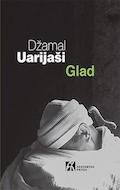
The European Union Prize (#Prizes) for Literature plays a significant role in facilitating the dissemination of translations in Serbia. An illustrative example of this impact is seen three years after Jamal Ouariachi was awarded the prize when his novel A Hunger was translated into Serbian. Born in Amsterdam to a Dutch mother and Moroccan father, Ouariachi initially pursued a career in psychology, working as a therapist before transitioning to writing. He marked his debut in 2010 with the novel The Destruction of Prosper Morèl (De vernietiging van Prosper Morèl) and has gained recognition for exploring controversial subjects in his literary works.
Jamal Ouariachi's novel, A Hunger, not only captured the attention of book bloggers but also garnered recognition from traditional media, including a succinct review in the newspaper Danas. Across various reviews, a consistent theme emerges: the novel delves into sensitive topics such as taboos, prejudice, sexuality, moral values, and civil liberties. Critics widely emphasize that Ouariachi's work provides a critical examination of the hypocrisy inherent in Western society and humanitarian activities.
In his review for Danas, Milenković (2020) goes further to assert that Ouariachi skillfully navigates the intricate power dynamics and relationships within the narrative, exposing the underlying ‘hypocrisy and cynicism of the wealthy regarding the so-called aid to the developed countries of the postcolonial world’. This insightful commentary positions A Hunger not only as a compelling literary work but also as a thought-provoking social critique that challenges prevailing narratives and sheds light on complex societal dynamics.
The intricate interplay of multicultural voices within Dutch literature, as observed through Serbian translations, reveals a dynamic and evolving literary landscape. Despite challenges in marketing and limited attention from the media, authors with multicultural backgrounds like Kader Abdolah and Jamal Ouariachi have successfully breached cultural boundaries, sparking nuanced conversations on societal complexities. However, the paratextual analysis underscores the need for a more refined portrayal of these authors, emphasizing their connections to Dutch literature.
(Bojana Budimir)
References
Brems, Hugo: Altijd weer vogels die nesten beginnen. Geschiedenis van de Nederlandse literatuur 1945-2005. Bert Bakker, Amsterdam 2016 (5de druk).
Đuran, Tamara: Sve što nam je potrebno jeste ljubav. In: Danas, Issue 11 Dec (2009). https://www.danas.rs/vesti/drustvo/sve-sto-nam-je-potrebno-jeste-ljubav/
Milenković, Nebojša: Roman o relativnosti moralnih vrednosti. In: Danas, Issue 9 May (2020). https://www.danas.rs/vesti/drustvo/roman-o-realnosti-moralnih-vrednosti/
Roman Iranca na holandskom – hit. In: B92, Issue 20 Nov (2009). www.b92.net/kultura/vesti.php
